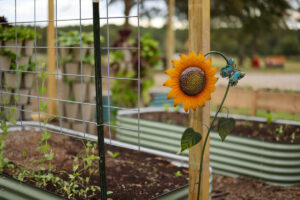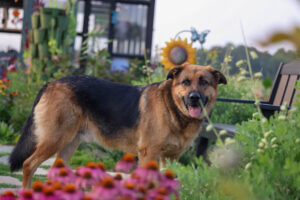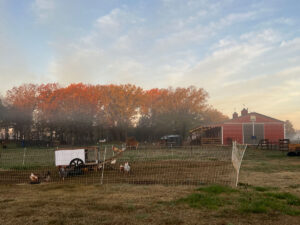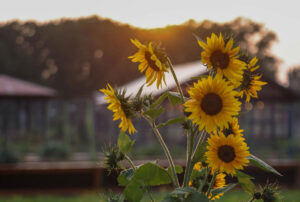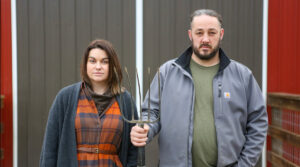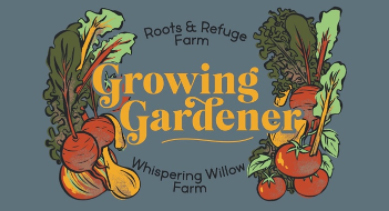Choosing the right breeds is critical to successfully raising animals on your homestead. If you are considering what breeds to raise, you’re in the right place. From the best chicken breeds, to dual purpose breeds, to dairy breeds: we will be sharing about their differences to help you choose which ones are best suited for your homestead.
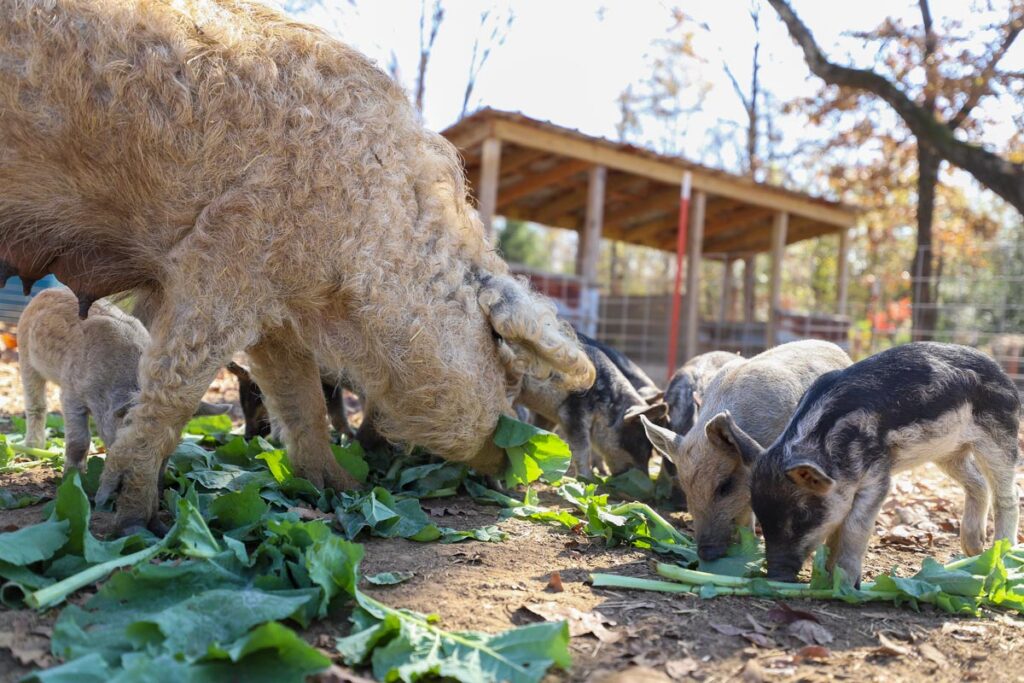
Are Heritage Breeds Better
Heritage breeds are generally hardier and self-sufficient than commercial breeds. That makes heritage breeds a great choice for the homesteader.
Commercial breeds have been selectively bred to be fast growing, with more meat (or egg) production to maximize profitability, while heritage breeds have been around and unchanged from our ancestors.
Heritage breeds are often healthier animals that have retained their instincts. They are more resilient and less prone to diseases and parasites, although they do grow significantly slower.
That being said, we have raised both heritage breeds and commercial breeds depending on our goal.
For more information on the process of breeding your animals, check out our post on breeding animals on the homestead.
A lot of research and consideration went into choosing our breeds, we hope you find this information helpful when planning your farm.
Choosing the Best Poultry Breeds
I suggest looking at layers and meat chickens as separate endeavors.
Many people want one flock of chickens for eggs and meat. You can do that by raising laying hens and then processing the older birds for meat. Just know that older birds will have tough and stringy meat. You will not be able to roast that chicken and enjoy soft, juicy meat. Stewing them will really be the only way to use those older birds.
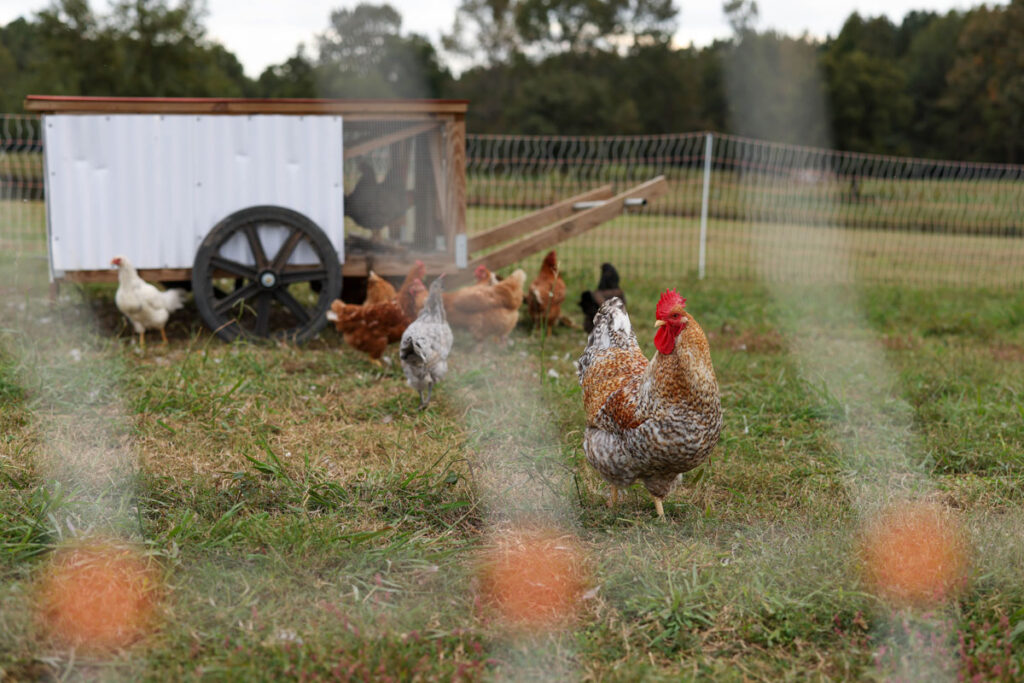
Best Laying Hen Breeds
The Rhode Island Red, Delaware, and Barred Rock chickens are popular heritage breeds that produce medium to large brown eggs.
Ameraucanas, Easter Eggers, and Crested Cream Legbars are good choices that will produce lovely blue or blue-green eggs.
Marans are a hearty heritage breed that some consider dual purpose for meat and eggs. They are known for their dark, chocolate brown eggs.
For higher volume egg production, try Cinnamon Queens or ISA Browns; although these are not heritage breeds, they will produce a lot of eggs.
Plus, you can read my tips on how to encourage your hens to lay eggs more frequently and consistently.
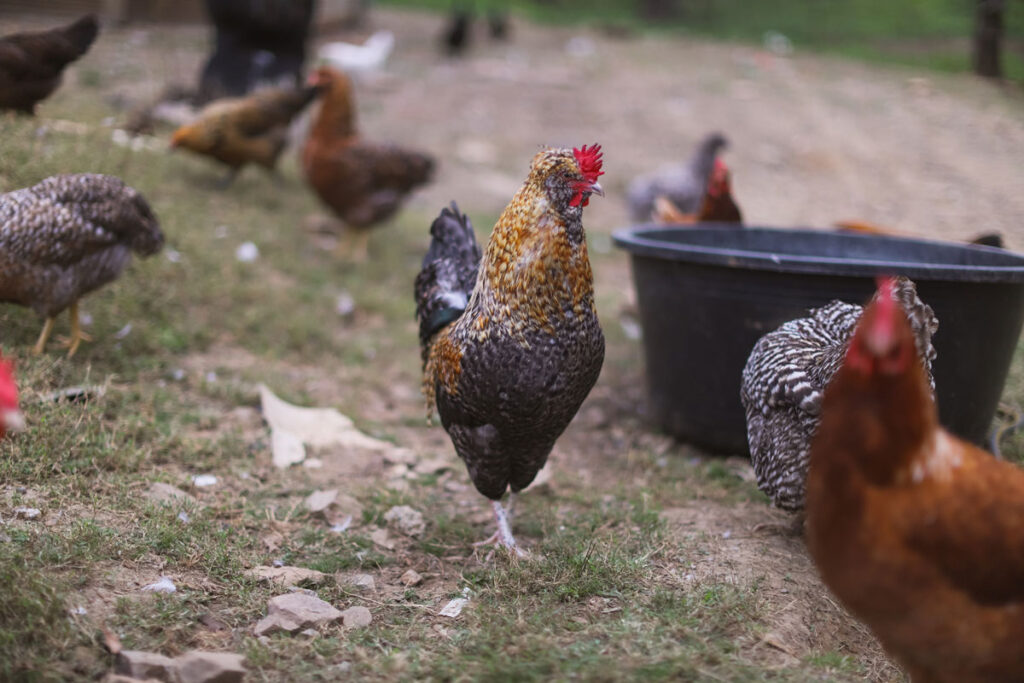
Meat Chicken Breeds
Red Rangers, Black Rangers, Ginger Broilers and a new type of Delaware are heritage meat breeds that we recommend.
Cornish Crosses are not a heritage breed, but have been selectively bred for meat production. They get a bad rap, but we have had only positive experiences raising them.
This year, we raised 60 Cornish Crosses and lost none to predators and none to sickness or other issues. We let them go past 12 weeks and didn’t have complications with them getting too big. They were very healthy.
Now, we did pasture those chickens and moved them to new grass every other day. The only problem that we have with Cornish Crosses is that they are not sustainable. You will always have to rebuy chicks from a hatchery.
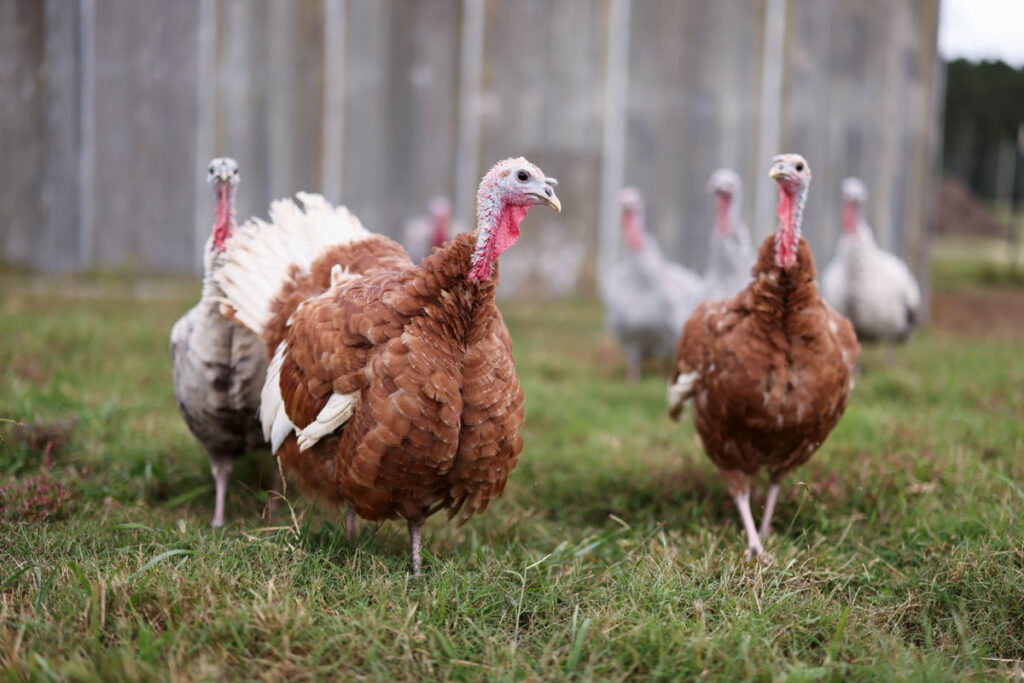
Turkey Breeds
A few heritage turkey breeds that are good on a homestead are the Standard Bronze, Bourbon Red, and the Slate Turkey.
We are raising heritage turkeys as breeding stock. They will have less breast and thigh meat, but the meat is very dark, rich and flavorful and we can raise them sustainably.
We have raised Broad Breasted Whites to put in our freezer for the holidays. They are the standard commercial turkey. They gain quickly and have more breast meat.
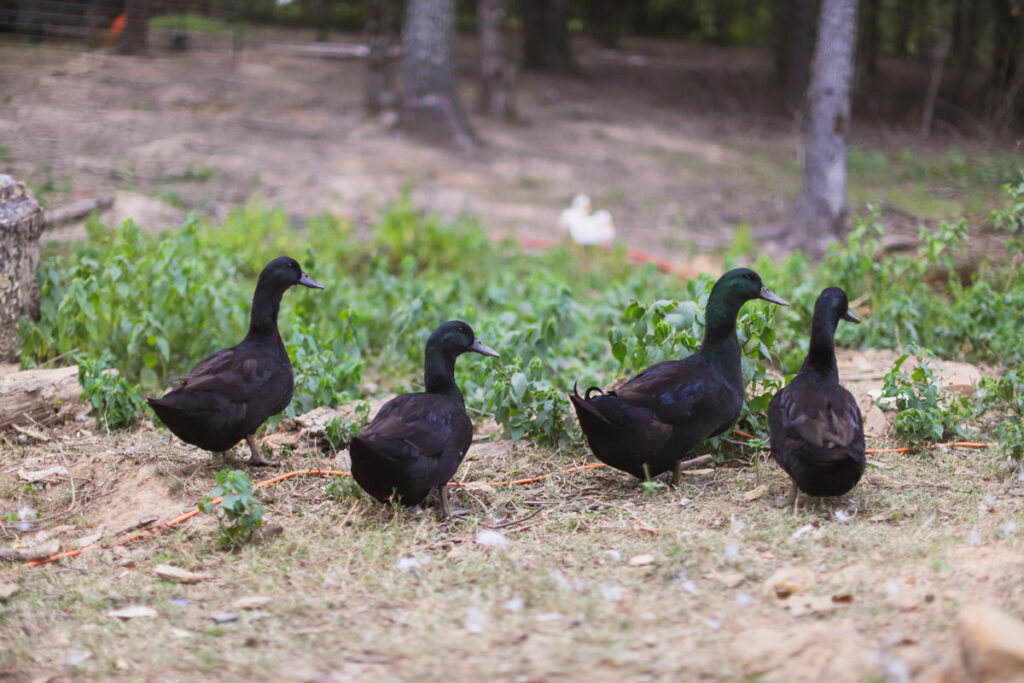
Heritage Duck Breeds
We raise our ducks for eggs, but they can be a good choice for meat as well.
Duck eggs have a much higher yolk to white ratio than chicken eggs and the eggs are oilier which makes them great for baking.
Indian Runner ducks make excellent layers.
Saxony and Khaki Campbell ducks are used for both egg production and meat.
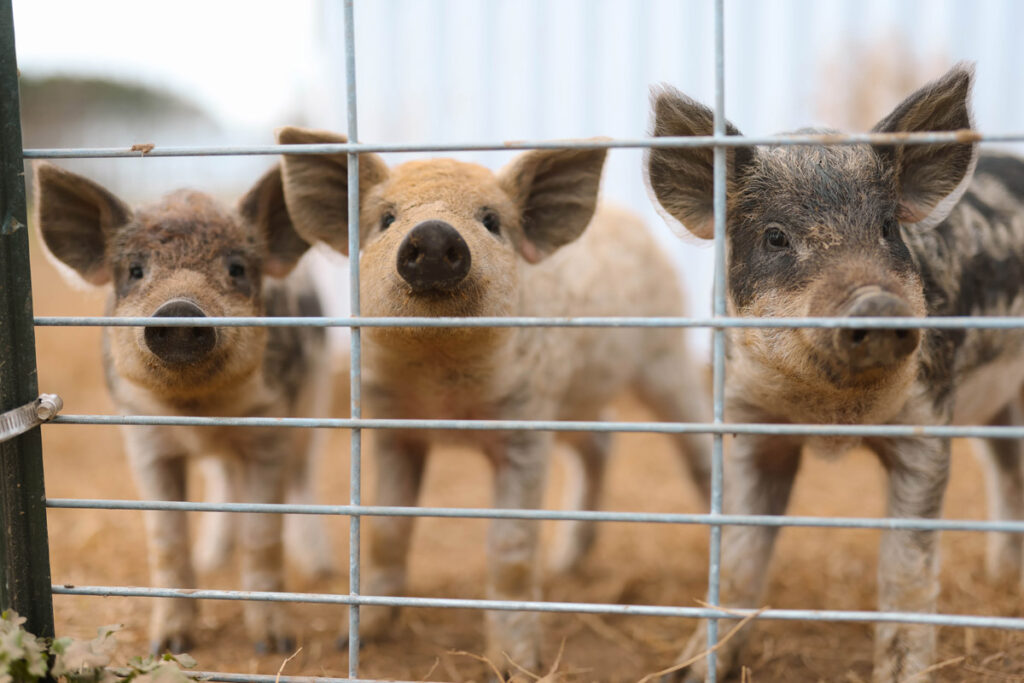
Heritage Pigs
We raise a breed of pig called Mangalitsas. They are called the Kobe beef of pork because of the high quality fat texture.
Mangalitsas typically take twice as long to fill out, but the meat can be very high quality. They have smaller litters, which we liked because it is easier to manage on our homestead.
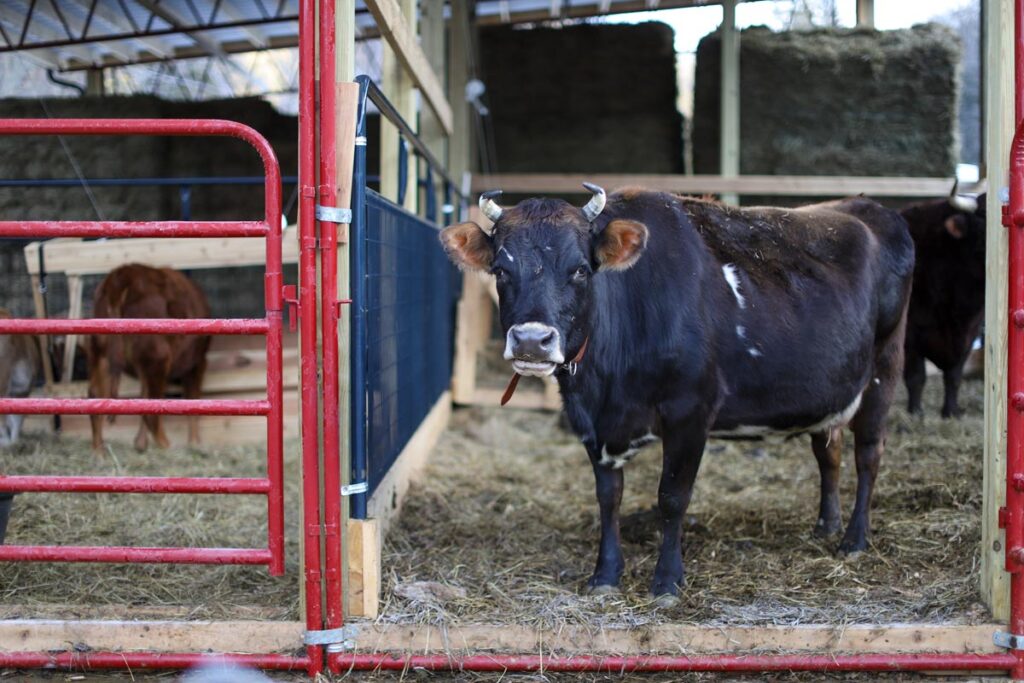
The Best Heritage Cattle Breeds
There are many excellent heritage breeds of cattle to choose from both for milk and meat. We will name a few, but this list is by no means extensive.
The Guernsey is probably one of the best known dairy cows. They have a good disposition and produce quality milk.
The Heritage Shorthorn is a dairy breed known to be resilient and productive and it produces well on foraging.
Ayrshires are popular for their economical, grass-based milk production.
Pineywoods is a rare dual-purpose breed that is one of the original cattle breeds brought to the United States. It is mostly used for meat production but can be used for dairy purposes as well.
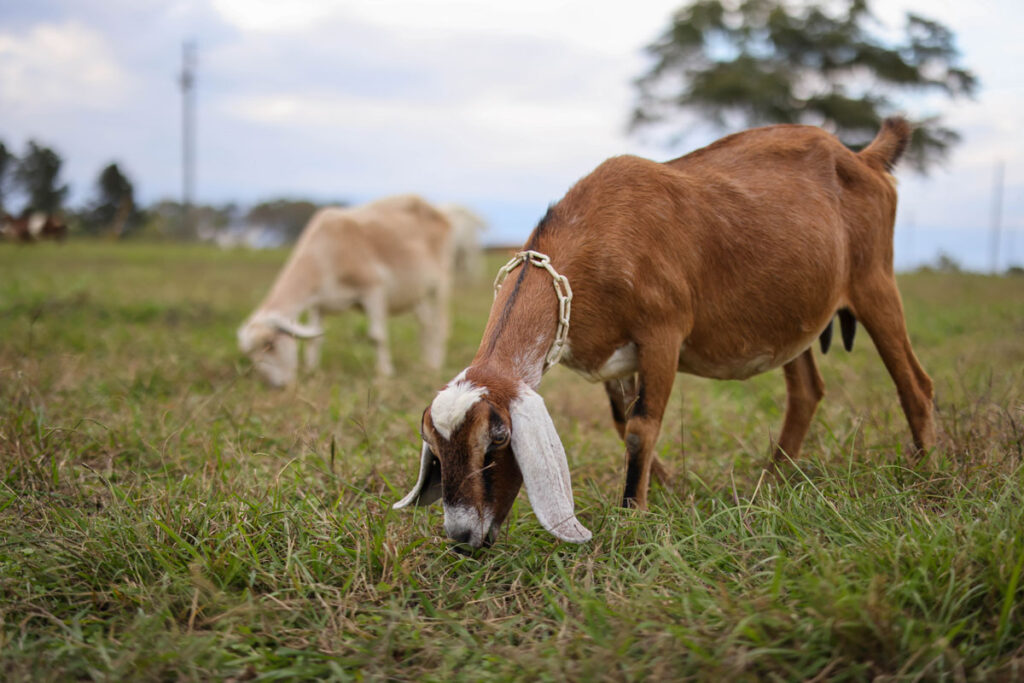
Heritage Sheep & Goat Breeds
Goats and sheep are becoming popular homestead options largely because of their versatility. They are used for meat, milk, fiber, and even weed control.
We have only raised goats for their milk up to this point.
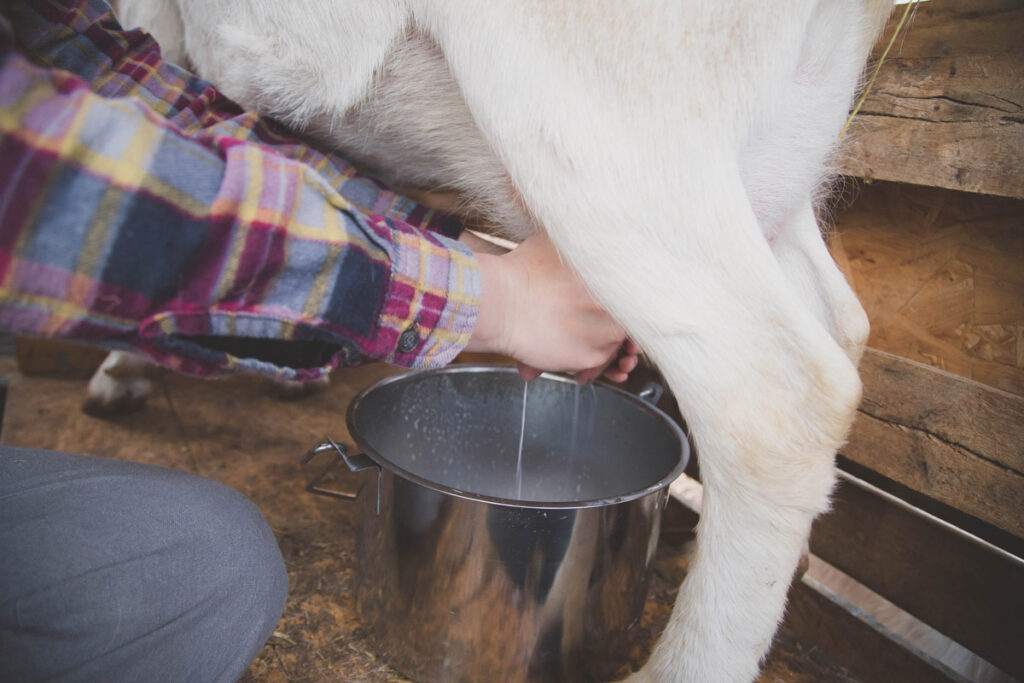
Dairy Goat Breeds
We keep Nubian, Lamancha, and Nigerian Dwarf goats for their milk. None of these breeds are ideal for meat, but their milk is delicious and good for you.
Goats milk can be used for drinking or making homemade cheese, butter, ice cream and yogurt.
Meat Goat Breeds
Although goat meat is uncommon to find in an American grocery store, it is very popular in other countries. Goat meat is similar to deer meat in taste.
For meat breeds, we recommend the Kiko and Boer goats.
Heritage Sheep
We do not keep sheep and so I cannot make a recommendation based on experience. The Gulf Coast, Florida Cracker, and Hog Island sheep are heritage breeds worth looking into that are noted for their hardiness and resistance to parasites.
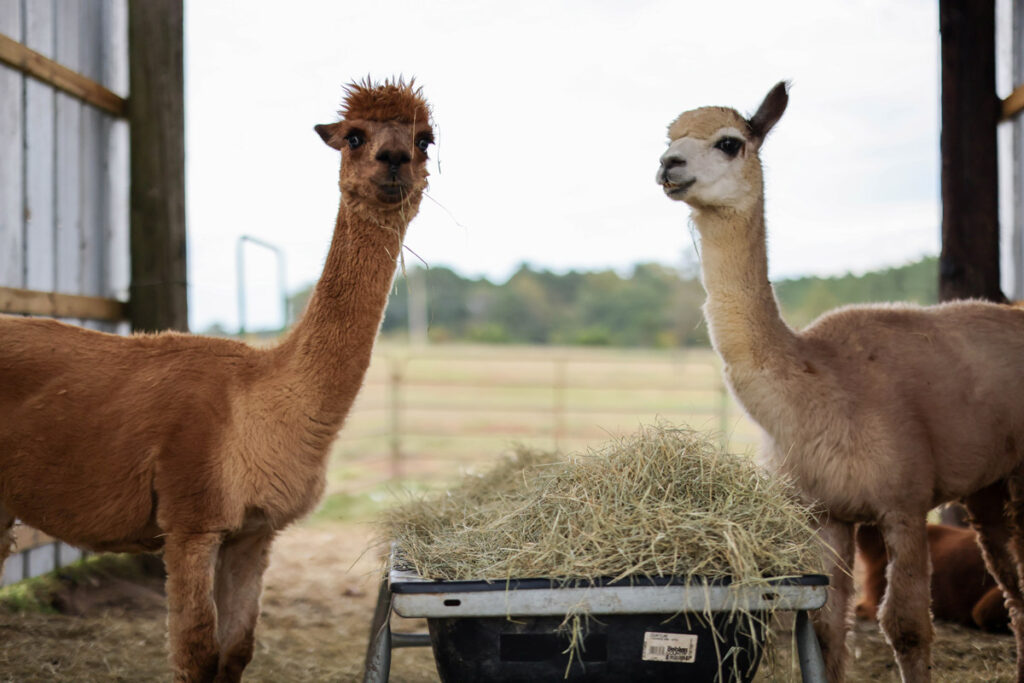
Alpacas
We raise alpacas. I keep them for fiber and I am learning to spin with that fiber.
Alpacas are not an economical meat source for a homestead because they only have one offspring at a time and are pregnant for 12 months. As far as turnaround and production versus the cost, it doesn’t make sense.
Alpacas are not native to North America and are dependent on chemical de-wormer to survive here. I don’t want to be eating something like that.
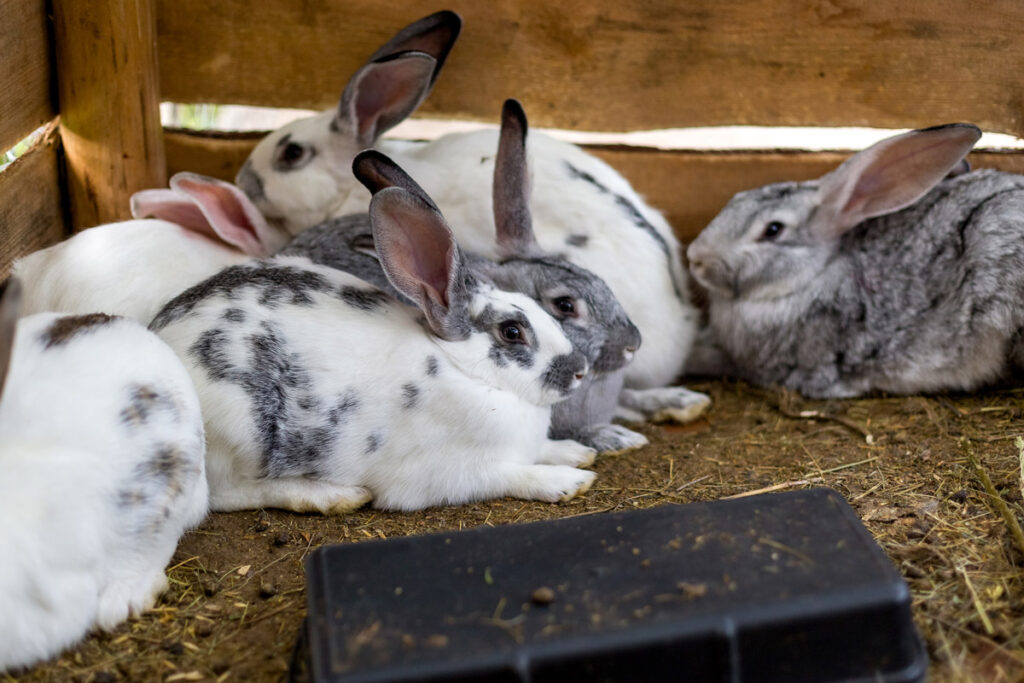
Heritage Rabbit Breeds
Many people have a lot of success raising rabbits for a meat source. They are the fastest growing feed to meat ratio animal. Rabbits are a wonderful option for people who have a small amount of space or are in town.
American Chinchilla rabbits and Silver Fox rabbits are both good choices for breeding meat rabbits.
What are some of your favorite breeds to raise? I'd love to hear your thoughts in the comments below. I hope this was a helpful resource in choosing heritage breeds for your homestead.


